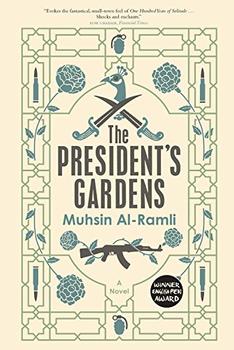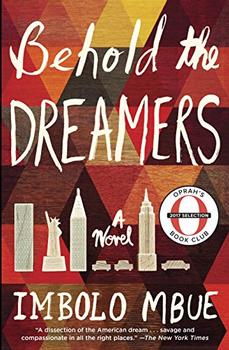Summary | Excerpt | Reviews | Beyond the book | Read-Alikes | Genres & Themes | Author Bio

It's hard enough being a teenager, with a new layer of identity forming over the one you thought you already had, and everything else that comes with that painful process. It's even tougher when you're an exile from your own Middle Eastern country, having fled when your father, the dictator of that country, was killed by your religious-extremist, top military official uncle, in a Hamlet-esque coup.
This is just what happens to 15-year-old Laila. She, her mother Yasmin, and her six-year-old brother Bastien, live twenty-five miles from Washington D.C., and are trying to fashion a normal life after living in an opulent palace, full with parties and expensive dresses and security. The Tyrant's Daughter comes from the creatively fertile mind of J.C. Carleson, a former undercover CIA officer, who knows well the turmoil in the Middle East. She was inspired to write the novel after seeing one of Saddam Hussein's compounds in the summer of 2003. It had a playground in it, and as Carleson writes in her author's note, she wondered who those children were and if they knew who Hussein truly was.
Laila learns many things she never knew about the father when she arrives in the United States. The atrocities he committed are stunning. For example, when Laila visits the cramped apartment of Amir's family - who came from the mountainous border region of Laila's country and, like her, was able to escape to the U.S., but not with the assistance of the CIA – she learns that her father ordered an air strike on Amir's village, believing that his village was a rebel stronghold and Amir's sister, Nadeen, became disfigured from it. Laila's reaction to this moment is a testament to Carleson's effective writing: it's not immediate; it gradually takes hold of Laila, twisting her emotions hard, and through the quiet, understated, but no less powerful language of her thoughts and actions, we feel it as vividly as she does.
Laila's experiences living in the United States are an eye-opener for her, but more so for us. We're so accustomed to our culture and our ways of life we can't always imagine what it must be like for someone new to our country. Laila remembers the "endless cups of hot, sweetened tea" in her country, and observes that they have been "replaced here by fizzy liquids gulped from Styrofoam containers the size of sand pails." She wonders at the proliferation of fast-food restaurants in "one small area." She has astute objections to school lunches. But the most affecting moment of her journey of American discovery is when she visits her first library, her school library, in order to find out more information about her father's regime, hoping for truth that will soundly disprove what the world seems to know about her father:
Where I'm from, libraries are like museums. They're rare - locked and guarded vaults that house only books and documents that have long outlived any practical value. Compared to the dusty archives of my past, the room before me seems as garish and industrious as a neon-lit convenience store. The scattered magazines, glowing computer terminals, and half-desperate literacy posters on the walls first strike me as disrespectful and irreverent. But it doesn't take long before I realize the magic of this library: this is a place that was built to be used.
While Laila is learning more about the United States as well as who her father truly was, the CIA officer who flew them out of the country after the coup looms in the shadows, pulling the strings that keep Laila and her family from going broke. His hope is that Yasmin will be a go-between between the CIA and Laila's uncle. They would prefer that he not remain in power, but he's all that the American government has in maintaining relations with, as Laila says, his "oil-soaked country." This connection with the CIA officer and her uncle throws Laila into severe conflict between developing a new life and the possibility of going back to her old one.
The Tyrant's Daughter vividly represents the teenage experience, not only in forging one's identity in the world, but in learning that the world is scarcely ever simple; that it's full of complexities and contradictions. Laila's father loved her. But he was a tyrant. Her new friend Emmy doesn't wear layers like Laila was required to in her country. But she's not a whore because of that, as Laila thought early on. She wasn't allowed to be affectionate with boys, or even know them as closely as she does Ian, whom she meets at school. Laila can be an entirely new girl here in America - a girl who can embrace these complexities and contradictions; a girl who can finally be herself.
In my opinion, Carleson's powerful writing style, as well as her choice of subject matter, will result in The Tyrant's Daughter being on a number of best of year lists - and it might just be the best YA book of the year.
![]() This review was originally published in The BookBrowse Review in March 2014, and has been updated for the
September 2015 edition.
Click here to go to this issue.
This review was originally published in The BookBrowse Review in March 2014, and has been updated for the
September 2015 edition.
Click here to go to this issue.

If you liked The Tyrant's Daughter, try these:

by Muhsin Al-Ramli
Published 2019
One Hundred Years of Solitude meets The Kite Runner in Saddam Hussein's Iraq.

by Imbolo Mbue
Published 2017
Oprah Winfrey's Summer 2017 Book Club Pick
In the vein of Amy Tan and Khaled Hosseini comes a compulsively readable debut novel about marriage, immigration, class, race, and the trapdoors in the American Dream - the unforgettable story of a young Cameroonian couple making a new life in New York just as the Great Recession upends the economy.
Your guide toexceptional books
BookBrowse seeks out and recommends the best in contemporary fiction and nonfiction—books that not only engage and entertain but also deepen our understanding of ourselves and the world around us.